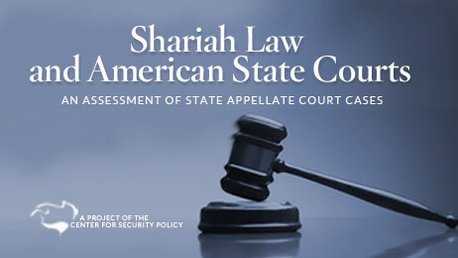Shariah Law and American State Courts: An Assessment of State Appellate Court Cases
This study evaluates published appellate legal cases that involved “conflict of law” issues between Shariah (Islamic law) and American state law.

11. Abd Allav. Mourssi, 680 N.W. 2d 569 (Minn. Ct. App. 2004).
Shariah: Highly Relevant TCSY; ACSY
Abd Alla and Mourssi entered into a partnership agreement. Included in the terms of the partnership agreement was a clause whereby both parties agreed to submit any disputes arising out of the partnership agreement to Islamic arbitration. A dispute arose between the two parties and the disagreement was submitted to an Islamic arbitration committee. Following the arbitration committee’s ruling on the dispute, Abd Alla asked a district court to confirm the arbitration decision. Abd Allah also argued that Mourssi had not timely contested the arbitration committee’s decision. Mourssi alleged that the arbitration decision should be vacated because, Mourssi alleged, the committee exceeded its authority and the arbitration award was obtained by corruption, fraud, and undue means. The trial court confirmed the Islamic arbitration committee’s decision. The Minnesota appellate court held that district court properly confirmed the arbitration committee’s ruling. The Minnesota appellate court said that Mourssi did not contest the arbitration committee’s ruling in the timeframe required by Minnesota law. Moreover, the appellate court stated that Mourssi did not establish that the arbitration ruling was obtained as a result of fraud or other undue means which would have allowed Mourssi, under Minnesota law, to vacate the arbitration committee’s decision.
12. El-Farra v. Sayyed, et al., 226 S.W.3d 792 (Ark. 2006).
Shariah: Highly Relevant TCSN; ACSN
The Islamic Center of Little Rock (Center) hired El-Farra to serve as the Center’s imam in January 2001. On May 15, 2003 and May 30, 2003, person responsible for the Center’s governance sent El-Farra disciplinary letters advising El-Farra that his sermons were inaccurate and inappropriate. Additionally, the disciplinary letters accused El-Farra of creating disunity and other misconduct that was contrary to Islamic law. In July 2003, El-Farra was fired and paid sixty days salary as required by the terms of his contract with the Center. El-Farra sued for breach of contract, defamation, and tortious interference with a contract. The trial court ruled the First Amendment prohibited the courts from hearing El-Farra’s claims and dismissed the suit. The Arkansas Supreme Court held that the trial court’s dismissal of El-Farra’s suit was proper on First Amendment grounds because the claims made by El-Farra could not have been decided by neutral principles of law, but instead would have required the court to determine the propriety of El-Farra’s termination by inquiring into Islamic law.
13. In re Marriage of Malak, 182 Cal. App. 3d 1018 (Cal. Ct. App. 1986).
Shariah: Highly Relevant TCSN; ACSY
Laila (wife) and Abdul (husband) Malak, both Lebanese nationals, were married in 1970. Laila and Abdul moved to the UAE in 1976 to escape Lebanon’s civil war. In July 1982, Laila moved to California and took the couple’s two children with her without Abdul’s consent. Laila filed for divorce and custody of the couple’s two children in California court in September 1982. Abdul obtained a preliminary order from a Lebanese Sharia court awarding him custody of the couple’s two children on February 8, 1983. Laila was personally served with the order on May 26, 1983. Laila was required to respond to the Sharia court within 15 days of being personally served if she wanted to oppose the Sharia court’s preliminary order. She failed to file an opposition within 15 days; and the Sharia court’s preliminary custody order became final on June 30, 1983. Abdul filed the Sharia court’s final order and requested that the California courts enforce the order. The trial court refused to enforce the Sharia court’s order, in part, because the trial court did not believe that the children’s best interests were considered by the Lebanese Sharia court. The California appellate court ordered that the Sharia court’s custody orders be enforced and that Abdul be given custody of the two children. The California appellate court appeared to defer to the Sharia court’s analysis of what was in the children’s best interests rather than make an independent assessment of the best interests of the children. For example, the California appellate court did not comment on or challenge the Sharia court’s finding that the couple’s children had many friends in Lebanon despite the fact that the children had spent all or almost all of their lives outside of Lebanon in the UAE or America. The Sharia court’s analysis emphasized that Abdul, the children’s father, was a Muslim and that Lebanon, Abdul’s then place of residence, would allow them to receive an Islamic education.
- LIVE NOW – Weaponization of US Government Symposium - April 9, 2024
- CSP author of “Big Intel” is American Thought Leaders guest on Epoch TV - February 23, 2024
- Four weeks after release, Big Intel remains a #1 Amazon bestseller - February 13, 2024
